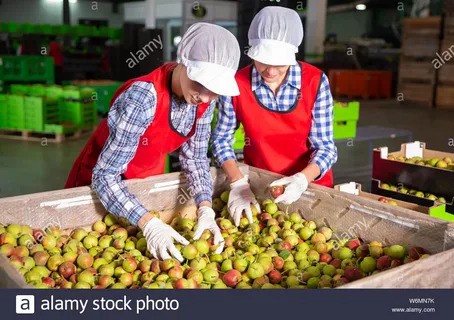Italy Fruit Packing Jobs
Before diving into the details, here’s what you’ll learn: Italy offers abundant seasonal and year-round fruit packing roles across key regions (such as Sicily, Puglia, and Emilia-Romagna), with hourly wages ranging from €8 to €12 (equivalent to approximately €13 000–€18 000 annually) in 2024 Seasonal Work VisaERI Economic Research Institute. You’ll discover the peak seasons for grapes, citrus, and stone fruit; the distinct tasks from grading and weighing to packaging and cold-chain management; regional and EU legal requirements (including Italy’s quota-based Seasonal Work Visa) Migration and Home Affairs; and practical tips for applications—from trusted job portals to worker cooperatives ItaliaHello. We also unpack working-condition challenges, including exploitation risks highlighted by recent investigations The GuardianFinancial Times, and share best-practice advice to help you thrive on Italy’s orchards and in its modern packing facilities.
Overview of Italy’s Fruit Packing Sector
Italy is one of Europe’s largest fruit producers, ranking in the top three for citrus, apples, and grapes LinkedIn. Its diverse climate—from the sun-baked fields of Sicily to the fertile plains of Emilia-Romagna—enables year-round harvests of oranges, peaches, and kiwis MioMyItaly.com. As of 2023, the Italian fruit and vegetable industry generated over €14 billion in export value, with processed and packaged produce representing 30 percent of that total CBI.
Seasonal demand for fruit packing jobs typically peaks in:
-
Late autumn/winter (November–February) for “clementine” and oranges in Sicily and Calabria.
-
Spring (March–May) for kiwis in Lazio and Campania.
-
Summer (June–August) for peaches, apricots, and cherries in Emilia-Romagna and Puglia.
-
Early autumn (September–October) for grape harvesting and packaging in Veneto and Tuscany.
Packing centres range from small cooperatives employing fewer than 50 workers to large industrial facilities handling 1 000+ tonnes per day during peak season.
Types of Fruit Packing Roles
1. Sorting and Grading
Workers inspect fruit for size, color, and defects. Graders typically stand on conveyor lines, using hand tools or optical scanners to divert sub-standard items.
2. Weighing and Labeling
After grading, fruit is weighed (often in pre-set batch sizes: 5 kg, 8 kg, or 15 kg) and labeled with traceability codes (required under EU law) CBI.
3. Packaging and Boxing
Packers place fruit into boxes or clamshells, cushion with protective material, and seal cartons—often requiring repetitive lifting (up to 15 kg).
4. Quality Control and Cold-Chain Management
Higher-skill roles monitor temperature and humidity in storage rooms, maintain HACCP logs (EU food-safety standard) CBI, and test random samples for firmness and sugar content.
5. Forklift and Machinery Operation
Certified operators drive forklifts to stack pallets and load trucks. A valid “patentino” (licence) is required for machinery use.
Regional Hotspots and Seasonal Calendar
| Region | Main Crops | Peak Packing Season | Typical Employers |
|---|---|---|---|
| Sicily (Catania) | Oranges, clementines | Nov–Feb | CO.RI. Fruit Cooperative; BIO Sicilia |
| Puglia (Foggia) | Olives, grapes, peaches | Jun–Aug; Sep–Oct | OP Agricola Pugliese; Vivai Montedoro |
| Emilia-Romagna | Peaches, plums, pears | Jun–Aug | Conserve Italia; Coprob |
| Lazio / Campania | Kiwis, strawberries | Mar–May; Apr–Jun | Kiwi Italia; Società Agricola Torre di Giano |
| Veneto / Trentino | Apples, grapes (table/juice) | Aug–Oct | Melinda Consortium; La Trentina Fruit |
Seasonal work in southern regions often involves shared rural housing (“barracche”); northern centres provide dormitories or partner with local hotels.
Compensation and Benefits
Hourly Wages and Annual Estimates
Fruit packing roles typically pay between €8.00 and €12.00 per hour, depending on region and employer Seasonal Work VisaSalary Expert. At €8/hr, a 40-hour week yields €1 280 gross monthly (≈€15 360/year). At €12/hr, wages climb to €1 920 gross monthly (≈€23 040/year).
Overtime and Bonuses
Overtime (beyond 40 hours/week) is paid at 125–150 percent of the base rate under Italian labour law (Contract for Temporary Work) Migration and Home Affairs. Some cooperatives offer attendance bonuses (up to €50/week) and productivity bonuses tied to tonnage processed.
In-Kind Benefits
Many employers include:
-
Free or subsidized accommodation (dormitories or communal flats) ItaliaHello.
-
Meal vouchers (€5–€7 per working day).
-
Transport allowances for remote packing sites.
Legal and Visa Requirements
EU/EEA Citizens
No work permit required; registration with the local Sportello Unico per l’Immigrazione is needed if employment exceeds three months Migration and Home Affairs.
Non-EU Nationals: Seasonal Work Visa
Italy operates an annual quota (Decreto Flussi) for seasonal workers. Key steps:
-
Employer’s Application: Italian employer submits “Dichiarazione di Interesse” during open call (usually December–January).
-
Visa Application: Once accepted, worker applies for a Type D Seasonal Visa at local consulate.
-
Duration: Up to 9 months; not renewable consecutively Italian Visa.
-
Convertibility: Seasonal permits can convert to standard work permits if quotas permit.
Work-Contract Protections
Seasonal workers receive a Contratto Collettivo Nazionale del Lavoro Agricolo guaranteeing minimum wages, maximum working hours, and paid leave. Workers must be registered by employers with INPS (social security) and INAIL (insurance against workplace accidents).
Recruitment Channels & Application Tips
Official and Cooperative Portals
-
ItaliaHello and Caritas Italiana list legal agricultural vacancies and warn against exploitative gangmasters ItaliaHello.
-
CONSILP and CLAAS cooperatives recruit directly for member farms.
Commercial Job Platforms
-
SeasonalWorkVisa.com and LinkedIn advertise visa-sponsored roles LinkedInSeasonal Work Visa.
-
Indeed.it and Glassdoor.it feature packing-centre vacancies.
In-Person Hiring Events
Agricultural job fairs in Bari, Catania, and Bologna (March–April) connect workers with cooperatives and agribusinesses.
Application Best Practices
-
Prepare a Simple Italian CV: Emphasize any previous farm or warehouse experience.
-
Bring Identification: Passport, driving licence (if applicable), and scanned diplomas.
-
Demonstrate Reliability: References from past seasonal employers boost your profile.
-
Learn Basic Italian Phrases: Even simple greetings (“Buongiorno,” “Grazie”) show respect.
Working Conditions & Ethical Concerns
While many facilities adhere to legal standards, investigative reports reveal ongoing risks:
-
Heat Stress and Overwork: Deaths from 40 °C field conditions have been documented, underscoring inadequate rest and water breaks The Guardian.
-
Exploitation by Caporali (Gangmasters): Southern Italy still sees workers paid under the table or forced into illegal housing, echoing modern-slavery patterns Financial Times.
-
Health and Safety Compliance: Look for employers who provide PPE (gloves, back braces) and conduct regular toolbox talks.
Tip: Seek out farms affiliated with Fair Trade or GlobalG.A.P., which enforce stricter labour audits.
Tips for a Successful Season
-
Arrive Early: Positions fill quickly—apply in January–February for November–February citrus campaigns.
-
Network Locally: Join Facebook groups like “Lavoro Stagionale Agricoltura Italia” to find roommate leads and transport car-pools.
-
Pace Yourself: Rotate tasks when possible to avoid repetitive-strain injuries.
-
Track Your Hours: Keep personal records to ensure correct pay and overtime.
Frequently Asked Questions
Q: Can I move from one region’s harvest to another?
A: Yes—after your first contract ends, you can sign with a new employer elsewhere, provided you exit and re-enter Italy on your visa.
Q: Are there language schools for seasonal workers?
A: Some cooperatives partner with local CPIA (Adult Education Centres) to offer free beginner Italian classes.
Q: What happens if I exceed the 9-month permit?
A: Overstaying voids your permit and incurs fines; always exit Italy before expiry or apply for conversion.
Italy Fruit Packing Jobs
Fruit packing jobs in Italy offer a gateway to gain European work experience, earn a competitive seasonal income (typically €8–€12/hr), and immerse yourself in Italian culture. By targeting the right regions, understanding legal protections, and applying through reputable channels, you can maximize earnings—plus enjoy in-kind benefits like accommodation and meal vouchers. Remain vigilant against unethical practices by choosing certified employers, and prepare well to thrive in the fast-paced world of Italian fruit packing. Buon lavoro!



